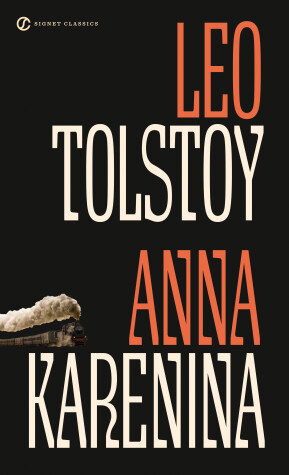Reviewed by anastasia on
Anna is the beautiful, passionate, and educated wife of Alexei Karenin, a cold and passionless government official. Her character is rich in complexity: she is guilty of desecrating her marriage and home, for instance, but she remains noble and admirable nonetheless. Anna is intelligent and literate, a reader of English novels and a writer of children's books. She is elegant, always understated in her dress. Her many years with Karenin show her capable of playing the role of cultivated, beautiful, society wife and hostess with great poise and grace. She is very nearly the ideal aristocratic Russian wife of the 1870s.
Her affair throws her into social exile, misery and eventually makes her commit suicide, because her love moves on with someone else.
The other main character is Levin. He is independent-minded and socially awkward. He is truly an individual character who fits into none of the obvious classifications of Russian society. Levin is his own person. He follows his own vision of things, even when it is confused and foggy, rather than adopting any group's prefabricated views. Moreover, Levin prefers isolation over fitting in with a social set with which he is not wholly comfortable. In this he resembles Anna, whose story is a counterpart to his own in its search for self-definition and individual happiness.
He falls in love with Kitty, Anna's friend, despite that they are from different social classes. Kitty being a Princess, and Levin being a Peasant. The two, struggle to find each other and happiness as they create a life together. . She gives up being a princess because she loves him, and she moves to his farm and becomes a peasant.
[THEMES]
Adultery
Social issue
Society will react negatively to this adultery
Karenin > willing to overlook Anna's affair as long as she doesn't want to get a divorce
Anna tries to escape society in Italy and on the country side
Social criticism/marital betrayal
Forgiveness
Forgiveness are sometimes compromised >Dolly forgiving Stiva for cheating
When Anna begs Karenin [has little effect> Anna continues loving Vronsky]
Ongoing process that may grow or diminish
Anna begs for forgiveness before committing suicide
Overall, I really enjoyed both the novel and the film. I usually don't read novels in this genre, but I really liked this one. If you get a chance, you should definitely check this book out! I highly recommend it!
Happy Reading!
-Ana @SoManyBooksSoLittleTime
This review will is also posted on my blog
Reading updates
- Started reading
- 17 February, 2013: Finished reading
- 17 February, 2013: Reviewed
